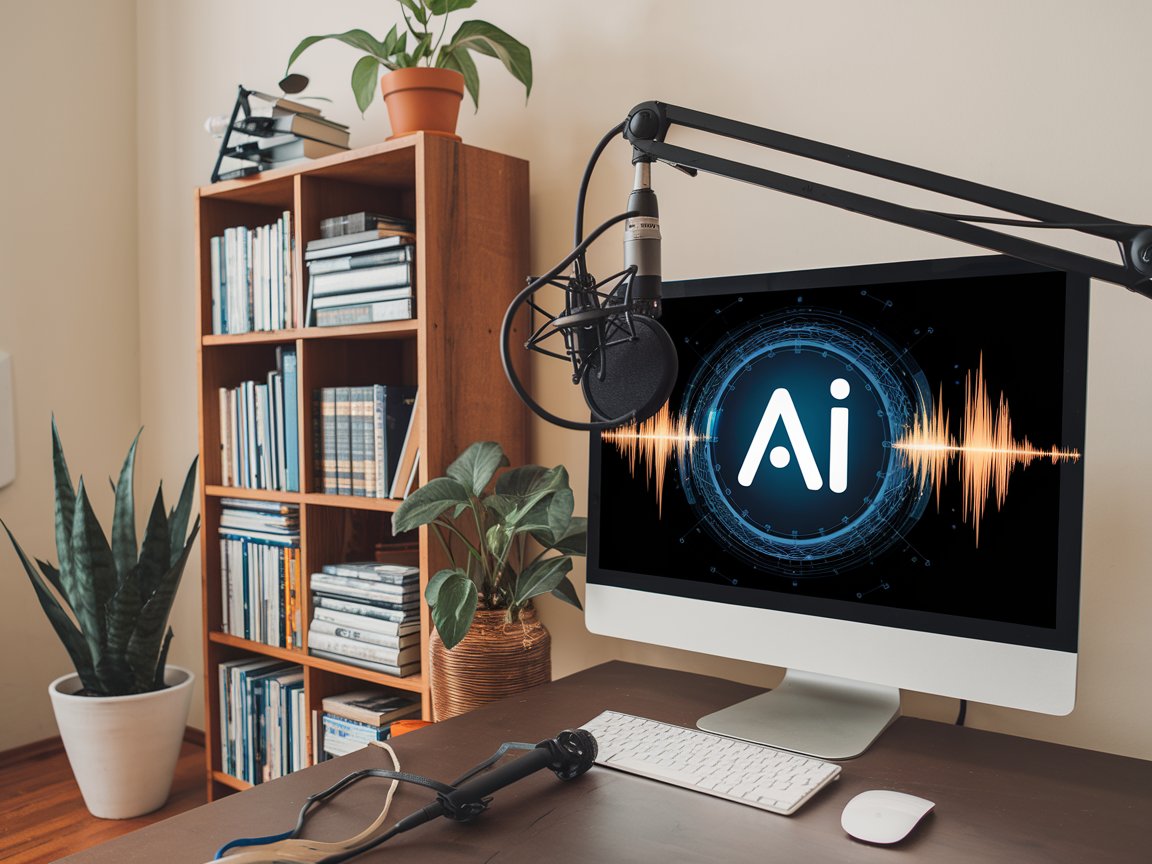
Voice Cloning Ethics: Navigating AIdeaFlow’s Innovations Responsibly
The rise of voice cloning technology has sparked a revolution in how we create and consume audio content. With the ability to replicate human voices with remarkable accuracy, tools like AIdeaFlow are at the forefront of this innovation. However, as we embrace these advancements, we must also navigate the complex ethical landscape associated with voice cloning. This blog post delves into the ethical considerations of voice cloning, particularly in the context of AIdeaFlow, a platform designed for generating AI-powered podcasts and audio content.
Understanding Voice Cloning Technology
What is Voice Cloning?
- Voice cloning involves using artificial intelligence to create a digital replica of a human voice.
- It utilizes deep learning algorithms to analyze voice samples and reproduce speech patterns.
- The technology can generate speech that sounds natural and expressive.
Applications of Voice Cloning
- Entertainment: Used in films, video games, and audiobooks to create lifelike character voices.
- Accessibility: Helps individuals with speech impairments communicate more effectively.
- Content Creation: Streamlines the production of podcasts and other audio content by reducing the need for voice actors.
The Role of AIdeaFlow in Audio Content Creation
Overview of AIdeaFlow
- AIdeaFlow is a platform that enables users to create AI-generated podcasts and audio content effortlessly.
- It combines advanced voice cloning technology with user-friendly tools for seamless audio production.
- The platform allows creators to generate high-quality audio content without the need for professional recording equipment.
Key Features of AIdeaFlow
- Voice Variety: Offers a range of voice options to suit different content styles.
- Customization: Users can modify tone, pitch, and speed to align with their brand voice.
- Integration: Easily integrates with existing content workflows, enhancing productivity.
Ethical Considerations in Voice Cloning
Consent and Ownership
- User Consent: It's crucial to obtain explicit consent from individuals whose voices are being cloned.
- Voice Ownership: The question of who owns a cloned voice— the original speaker or the creator—needs clarity in legal frameworks.
Misinformation and Manipulation
- Deepfake Concerns: Voice cloning can be misused to create misleading content, potentially damaging reputations.
- Authentication: Establishing protocols for authenticating voice content can mitigate risks associated with misinformation.
Navigating Consent and Transparency
Importance of Transparency
- Disclosure: Creators should disclose when a voice is AI-generated to maintain trust with their audience.
- Clear Usage Policies: Platforms like AIdeaFlow should have clear policies regarding the use of cloned voices.
Strategies for Ethical Consent
- Opt-in Models: Implementing opt-in models where individuals can choose to participate in voice cloning efforts.
- Revocation of Consent: Allowing individuals to revoke consent and remove their voice from platforms.
The Impact of Voice Cloning on Employment
Disruption of Traditional Roles
- Voice Acting: The rise of voice cloning could potentially threaten jobs in voice acting and audio production.
- Creativity vs. Automation: Balancing the efficiency of AI with the need for human creativity in audio content.
New Opportunities
- Augmented Roles: Voice cloning may lead to the creation of new roles that focus on managing and curating AI-generated content.
- Enhanced Accessibility: Providing opportunities for individuals with disabilities to contribute to audio content creation.
Regulating Voice Cloning Technology
Current Legal Frameworks
- Intellectual Property: Existing laws around copyright and intellectual property may not fully address voice cloning.
- Proposed Regulations: Some regions are exploring regulations specifically targeting the ethical use of AI technologies.
Best Practices for Compliance
- Developing Guidelines: Industry-wide guidelines for ethical voice cloning practices can foster responsible innovation.
- Collaboration with Stakeholders: Engaging with legal experts, ethicists, and creators to shape the future of voice cloning.
The Future of Voice Cloning Ethics
Evolving Standards
- Adaptability: Ethical standards must evolve alongside technological advancements to address emerging challenges.
- Community Engagement: Involving the community in discussions about ethical voice cloning can lead to more inclusive solutions.
The Role of Education
- Awareness Campaigns: Educating the public and creators about the ethical implications of voice cloning technology.
- Training Programs: Offering training for creators on responsible voice cloning practices.
Conclusion
As voice cloning technology continues to advance, platforms like AIdeaFlow offer exciting possibilities for content creators. However, with these innovations come significant ethical responsibilities. Navigating the complexities of consent, misinformation, and employment impacts is crucial for fostering a responsible voice cloning ecosystem. By prioritizing transparency, engaging with stakeholders, and adhering to evolving ethical standards, we can harness the power of voice cloning while safeguarding individual rights and societal trust. The future of audio content creation is bright, but it must be approached with care and responsibility.